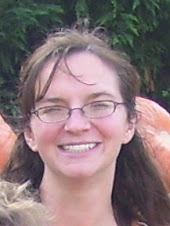I apologize for not getting this out yesterday, but I'm sick and have the same bedtime as my kids until I feel better. I did some brainstorming on marketing. Skywriting is my favorite. How I would love to look up at the beach and see my first scene written in one mile high letters (that's the size of the letters, not the altitude. Really.) It's almost dramatic enough for this writer's ego. Perhaps if the entire throng of beachgoers were taking notes, slack-jawed and/or teary-eyed…Oh. Hello. I forgot you were here. Ahem. Sorry about that. I said last time that the average person is exposed to 30,000 advertisements a day (according to marketing guru Steve Whigham). How do you get your book to stand out among all of those? And WHAT has to stand out? Do you need a bright yellow cover? An Oprah's book club sticker? (Yes. Give her your soul. She will sell a lot of books and your soul will get time with Dr. Oz and Dr. Phil, so your soul will be self-embracing and in a happy place, surrounded by Oprah's favorite things.) Let's talk about Oprah's book club. Love it or hate it, a recommendation from Oprah sells. Why? Steve claims that 95% of decisions are emotional (based on brain-imaging studies- more below on this.) So how does Oprah make us feel? I notice four basic responses. 2. Casual Oprahphiles- tune in every once in a while, maybe thumb through her magazine in the checkout. She says some interesting things and most of it is pretty good. These people have read at least one of her other book picks- possibly because their book club picked it- and they're willing to give her recommendation a chance. They like how they feel after watching Oprah- grateful that their life isn't so messed up, hopeful and ready to put their life in order, serious about fixing the ills in the world, etc. 3. Oprah Indifferents- Think, "Crap. She recommended another book. Everybody is going to read it and be talking about it, so I should, too." A lot of 'book people' may fall into this group. (In a parallel example, the buzz around Dan Brown's "The Lost Symbol" has made some people read it, just so they could weigh in) This is, as are the rest of my Oprah categories, merely conjecture. Notice that these categories are related to identity (If I read these books, I am a good, caring person. Oprah said so.) Reactionaries have an opposite though equally strong emotion, which I will call non-identity. (I will not become a sheep in Oprah's herd.) Did you know supermarkets use video of customers to measure time spend in a store, time standing in the aisle waffling about what to buy, observing what products people go straight for (and thus should be advertised outside, since by the time they get inside the decision is already made)? I've wondered why they stick books like "Coffees of the World" and "The Ultimate Tulip Guide" in the entry way at Barnes and Nobles. Marketing people call it "decompression", and the purpose is to ease us into the shopping experience, to let our brains adjust. I think they use those books to give us some easy decisions. To give us confidence that we are in control. It reminds me a bit of a lobster trap. Here's another trap- "Often a customer struggling to decide which of two items is best ends up not buying either. A third "decoy" item, which is not quite as good as the other two, can make the choice easier and more pleasurable, according to a new study using fMRI carried out by Akshay Rao, a professor of marketing at the University of Minnesota. Happier customers are more likely to buy. Dr Rao believes the deliberate use of irrelevant alternatives should work in selling all sorts of goods and services, from cable TV to holidays." (From this article in "The Economist") "In fact, most purchases that most active readers make are based upon the fact that the book resonates with other works that they have enjoyed. The readers almost never make a conscious connection, but it is there. "As I mentioned the other day, we choose the category of fiction that we do because we are looking for a certain type of controlling emotion in our work. The word "genre" doesn't really explain what we're doing when we choose our fiction. Instead, the sections in the bookstore ought to be titled "Wonder, Romance, Drama, Intrigue, and so on... "Sometimes the resonance that induces us to buy a book comes from the cover. My own fantasy novels have covers by Darrel Sweet. Sweet of course is famous for doing the covers for Terry Brooks and Robert Jordan, two of our best-sellers of all time. So when readers look at my novels, they are immediately reminded of books by those authors."
4. Oprah Reactionaries- WILL NOT read a book because she recommended it-but they won't be buying the books, so I only mention them. But they exist, as evidenced here.


I can see what he means. The publishers are very aware of cover art and what it conveys- hence the recovering of Wuthering Heights to look more like Twilight. More on this Tuesday, including how to make a living as a bum. Really. It's a good gig.
What emotion do you read for? Some possibilities- Adventure (like Dan Brown), romance (Stephenie Meyer), humor(Dave Barry), wonder(J.R.R. Tolkien), drama(Jodi Picoult)? Does it change?
What did one book say to the other one?
I just wanted to see if we are on the same page
In the Beginning
-
It’s February, we’re on day 5,392 of snow/bitter cold/ice/biting wind
(let’s not even get into politics), and all I want to do is lose myself in
reading...
22 hours ago



No comments:
Post a Comment